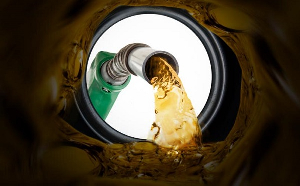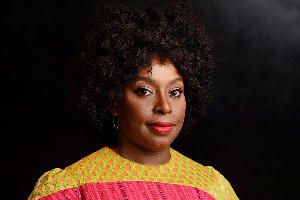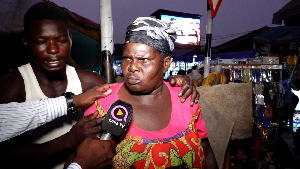Costs scheme GH¢ 70 million in 2008 alone
Extension services Coordinator of the Community Water and Sanitation Agency CWSA Theodora Adomako Adjei has warned that the National Health Insurance Scheme (NHIS) faces imminent extinction if the scheme does not focus on the issues of hygiene.
She said if the issues of hygiene are not addressed properly, there could come a time when the scheme may not have money to run.
Speaking to this paper after a 'a media/children's forum' in Cape Coast to usher in the 2nd Global Hand Washing Day celebrations, Mrs. Adomako-Agyei disclosed that NHIS spent over GH¢ 70 million on sanitation related diseases in 2008 alone.
“Majority of the cases reported at the Out Patient Department (OPD) of our health institutions are hygiene related, and if the trend is not stemmed, it would have dire consequences in terms of the cost of treatment sooner than later,” she cautioned.
Mrs. Adomako-Agyei explained that the poor hand washing habits of many Ghanaians is mostly responsible for this turn of events where diseases such as cholera, diarrhoe and respiratory tract infections such as the N1H1 (Swine flu) have become so prevalent in the country.
She lamented that many Ghanaians eat their own, or other people’s excrement because many are those who, either do not wash hands at all, or do not wash hands with soap after visiting the toilet, or before touching food.
Addressing the forum, the Coordinator revealed with statistical evidence that only 2.3% of mothers wash their hands with soap after disposing of their children’s feaces, while 2.7 % also wash hands with soap after visiting the toilet.
According to her, 41% of mothers also wash hands with water only after cleaning the child’s toilet, while 32% also wash hands with just water after they visit the toilet.
She noted, “As many as 63% of Ghanaians do not wash hands at all in a situation where about 68% of Ghanaians depend on public toilets due to the lack of toilets in their homes.
“The nature of public places of convenience is so unhygienic that one must always wash hands with soap after visiting those places,” she urged. She called for the culture of hand washing with soap after visiting the toilets and before eating to be inculcated into children right from infancy so that it would become ingrained in the psyche throughout their lives.
The coordinator lampooned Ghanaians’ attitude of watering hands before eating but washing them with soap after eating, apparently to kill the scent of meat or fish on the hands.
She emphasised that hand washing with soap, is the single most effective health intervention method that can save a lot of lives, particularly among children, urging the public to demand the provision of hand washing facilities such as clean water and soap at vantage points: near public latrines, lorry parks and market places to promote further the practice in the society.
At the celebration which fell on October 15, Deputy Minister for Water Resources, Works and Housing , Hanna Bisiw urged all parents to develop the practice of hand washing with soap in order to prevent diseases such as the N1H1( Swine flu) and other respiratory tract infections from attacking their Children.
“Women as mothers and care-givers are the major the major providers and servers of food both in the home and at public places,” Dr. Bisiw noted, warning, “Thus, one woman with contaminated hands will affect the health of her whole family and any outsiders who are served food or drinks by this woman.”
She therefore called on all Ghanaians to adopt the habit of hand washing with soap and make it a part of their lives.
Communication and Campaign Officer of WaterAid, Janet Alamisi Dabire called on both school children and the media to partner promoters of the campaign to send the message into the communities.
WaterAid Ghana, Schools Health Education Project (SHEP), Ministries of Local Government and Rural Development, Women and Children’s Affairs, Education, as well as Works and Housing are some of the collaborating agencies in the hand washing with soap campaign.
The campaign was initiated by Colgate Palmolive, Unilever, Procter & Gamble, while the World Bank, United Nations Children’s Fund (UNICEF) WHO, LSHTM and WSP are the other global partners.
General News of Tuesday, 20 October 2009
Source: Justice Lee Adoboe












